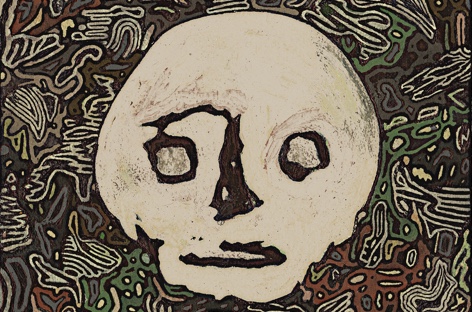Kilchhofer The Book Room
The Swiss producer conjures an enthralling mix of organic percussion and weird electronics on his best record yet.

Benjamin Kilchhofer’s version of ambient music avoids convention. Instead, he invites the listener into a separate dimension where time is slowed and sounds are altered. For his third album, The Book Room, on esteemed electronic label Marionette—home to Max Loderbauer and Burnt Friedman among others—the Basel, Switzerland-based artist has fashioned a strangely organic album that bears few comparisons.
According to label owner Ali Safi, it’s an “extremely personal and intensely emotional project,” which is borne out by its heart stirring melodies and exquisite detail. The Book Room builds upon the tribal drums and psychotropic sensations of 2016’s Dersu album—and his previous work under the name Timoka—adding new components to the mix. “Anzu” sets the scene, with its sampled tropical bird song, and fuzzily distorted keyboard riff. “Varen” is a circular techno pattern that orbits around counter melodies, with only gentle chattering rhythms beneath; when a subtle pad is added to the mix, it opens a brief window on a panoramic scene, only to enclose us again in Kilchhofer’s hypnotic realm a minute later.
Kilchhofer’s skill is in invoking a kind of electronic pastoralism, vividly human and alive, but prone to moments of moodiness and occluded atmospheres. The dark synth bass and live percussion of “Leng” suggest a shamanic ceremony in which visions are one minute serene, the next nightmarish. “Chogal” is utterly different: cloaked in tape hiss, it’s a loop of distorted viridian synth and found sound that could only be the product of an artist who immerses themselves in the rhythms of the wild. “Durhi” is another echoic loop that gets under your skin, reminiscent perhaps of the most disquieting ambient work of Scottish mavericks such as Boards of Canada or Lord of the Isles—other artists who have translated their experiences in nature into sound. “Skimo” is a warm ascension of chords, marimbas, and gentle live drums, and “Nihic” is especially lovely, its detuned synths sounding as if they’ve been unearthed from some ancient cassette tape buried beneath the earth for centuries. “Topot” again foregrounds the live tribal percussion, before discordant touches of electronics take the track in a spookier direction. By contrast, “Uhta” is a lovely, emotive spiral of tones that brings to mind the work of early ’90s ambient classics by Global Communication/Reload, with a vivid electroacoustic aspect.
With the availability of soft synths and cheap technology now, there’s a tendency in electronic music for artists to sound alike. Only by fashioning unique signature elements can producers can stand out. Kilchhofer has done just this on The Book Room—with tracks such as “Thorron,” little more than a synth melody, benefitting from his contorted, overdriven production. He sounds like he’s in the room playing on a keyboard, rather than moving blocks about on a computer screen.
At 20 tracks, the record does feel somewhat long and would shine even brighter if it were cut a little. Still, fans of beatless electronic music will be mesmerised by The Book Room. Though it may have taken its author years to put together, the effort has been worth it.
The Book Room is available now.

